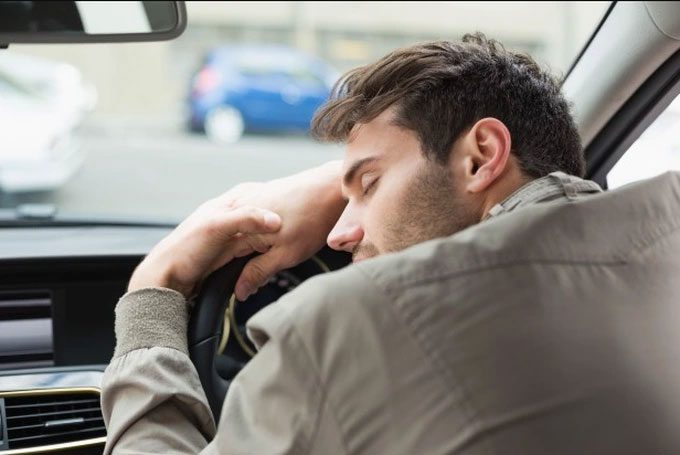If you drive after getting less than 4 hours of sleep, or are completely sleep-deprived the night before, the risk of an accident increases by up to 15 times.
A new study published in the journal Nature and Science of Sleep found that if drivers sleep less than 5 hours at night, their likelihood of being involved in a traffic accident is comparable to driving with a blood alcohol concentration above the legal limit.

Driving while fatigued is as dangerous as driving under the influence. (Image source: Getty).
Specifically, if you sleep less than 4 to 5 hours in the 24 hours before operating a vehicle, the risk of being involved in a collision nearly doubles.
This figure is equivalent to the risk of a crash when a driver has a blood alcohol concentration of 0.05%.
The risk of an accident also significantly increases with each hour of sleep deprivation the night before. In particular, if a driver only sleeps between 0 to 4 hours the previous night, their risk of an accident is up to 15 times higher.
Basing on scientific evidence, it is clear that regulating that drivers must get enough sleep before participating in traffic is as important as prohibiting the use of alcohol, drugs, and stimulants before driving.
“If we consider the level of risk that is deemed acceptable for intoxication, we might consider requiring drivers to sleep a minimum of 4 to 5 hours before driving,” the research team suggested.
In New Jersey, USA, a similar law known as “Maggie’s Law” was enacted in 2003, making it unlawful for drivers who have not slept in the previous 24 hours.
This law was introduced following a serious accident that resulted in the death of a college student.


















































